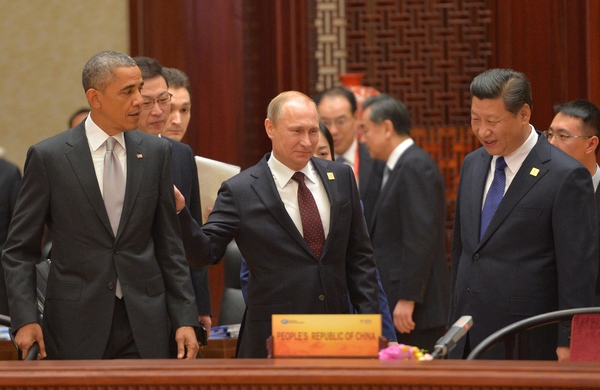The terrorist attack on Charlie Hebdo, a French satirical magazine that very few had heard of before last week but that at this point might well be the most recognizable periodical in existence, unexpectedly highlighted some of the constraints that Russia's increasingly anti-Western rhetoric has placed on its approach to foreign policy.
As is customary after such atrocities, Russian President Vladimir Putin rushed to offer sympathy to the French government and people. The similarity to 9/11, when Putin was famously the very first foreign dignitary to call on U.S. President George W. Bush, is not accidental.
Islamist terrorism is the most significant entry on an ever-shorter list of issues on which Russia and the West are in general agreement. Given the depth to which relations have plunged, it was perfectly understandable that the Kremlin would do its best to remind the West that, whatever its own faults, when it comes to fighting al-Qaida it is in the same foxhole. "Say what you want about us," the argument goes, "at least we're not chopping people's heads off."
Read Full Article »



